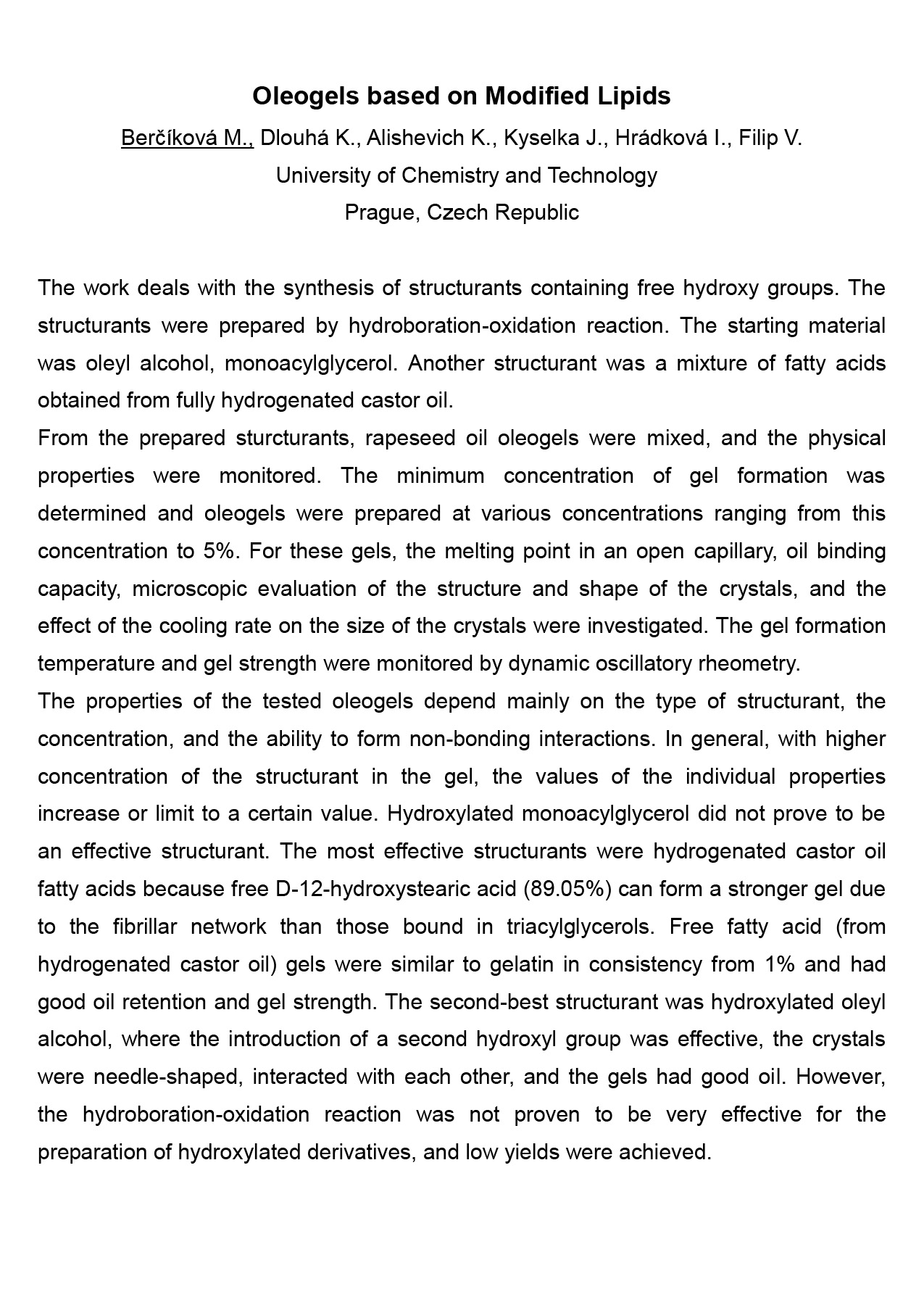The work deals with the synthesis of structurants containing free hydroxy groups. The structurants were prepared by hydroboration-oxidation reaction. The starting material was oleyl alcohol, monoacylglycerol. Another structurant was a mixture of fatty acids obtained from fully hydrogenated castor oil. From the prepared sturcturants, rapeseed oil oleogels were mixed, and the physical properties were monitored. The minimum concentration of gel formation was determined and oleogels were prepared at various concentrations ranging from this concentration to 5%. For these gels, the melting point in an open capillary, oil binding capacity, microscopic evaluation of the structure and shape of the crystals, and the effect of the cooling rate on the size of the crystals were investigated. The gel formation temperature and gel strength were monitored by dynamic oscillatory rheometry.
The properties of the tested oleogels depend mainly on the type of structurant, the concentration, and the ability to form non-bonding interactions. In general, with higher concentration of the structurant in the gel, the values of the individual properties increase or limit to a certain value. Hydroxylated monoacylglycerol did not prove to be an effective structurant. The most effective structurants were hydrogenated castor oil fatty acids because free D-12-hydroxystearic acid (89.05%) can form a stronger gel due to the fibrillar network than those bound in triacylglycerols. Free fatty acid (from hydrogenated castor oil) gels were similar to gelatin in consistency from 1% and had good oil retention and gel strength. The second-best structurant was hydroxylated oleyl alcohol, where the introduction of a second hydroxyl group was effective, the crystals were needle-shaped, interacted with each other, and the gels had good oil. However, the hydroboration-oxidation reaction was not proven to be very effective for the preparation of hydroxylated derivatives, and low yields were achieved.
